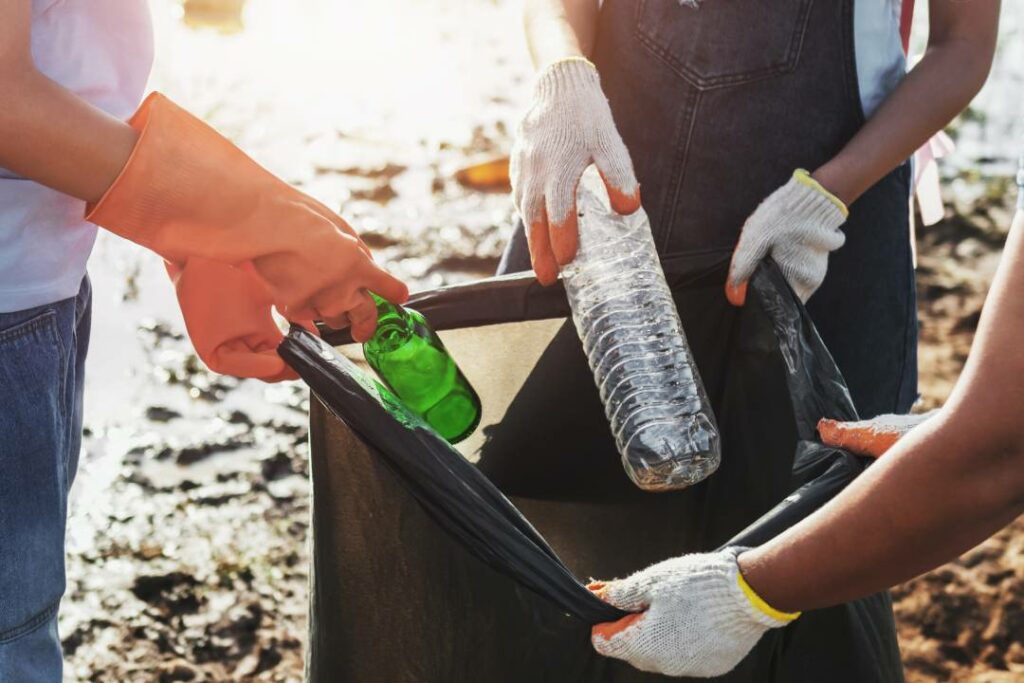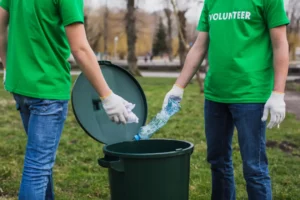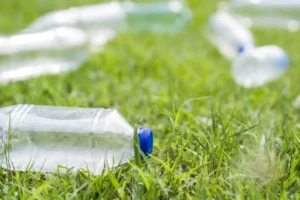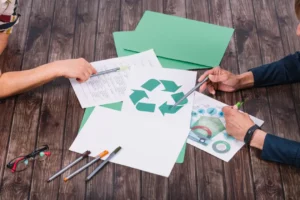Introduction
Recycling is more than just a buzzword; it’s a crucial step towards preserving our environment and reducing the negative impact of waste on our planet. While most of us are aware of the importance of recycling, many might not know where to start or how to make it a part of their daily lives. In this blog, we’ll explore the basics of recycling and provide you with practical tips on how to integrate eco-friendly waste management into your everyday routine.
Understanding Recycling
Before we delve into the practical aspects, let’s begin with a basic understanding of recycling.
What is Recycling?
Recycling is the process of collecting, processing, and transforming waste materials into new products. By doing so, we reduce the need for raw materials, conserve energy, and minimize the amount of waste that ends up in landfills.
The Benefits of Recycling
Recycling offers numerous benefits, both for the environment and our communities. Here are some of the key advantages:
- Environmental Conservation: Recycling helps reduce the extraction of natural resources, conserving forests, water, and minerals.
- Energy Savings: Recycling uses less energy compared to producing goods from raw materials, which can significantly reduce greenhouse gas emissions.
- Waste Reduction: Less waste in landfills means reduced landfill space requirements and lower disposal costs.
- Job Creation: Recycling industries generate employment opportunities, contributing to economic growth.
Types of Recyclable Materials
Recycling isn’t limited to just one type of material. Recycling is an eco-friendly practice that benefits our environment and conserves valuable resources. Various materials can be recycled to reduce waste and promote sustainability. Paper products like newspapers, cardboard, magazines, and office paper can be easily recycled, ultimately transformed into new paper items. Plastic recycling includes types like PET (Polyethylene Terephthalate) and HDPE (High-Density Polyethylene), but it’s essential to follow local recycling guidelines for specific instructions. Glass, especially bottles and jars, is highly recyclable and can be melted down to create fresh glass containers. Additionally, aluminum cans, steel, and tin cans are readily recyclable, contributing to the conservation of metals and energy. By responsibly recycling these materials, we play a vital role in reducing our environmental footprint and promoting a greener, more sustainable future.
How to Integrate Recycling into Your Routine
Now that we understand the importance of recycling let’s explore how to make it a part of your daily life:
- Set Up a Recycling Station: Designate an area in your home for recyclables. Use separate bins for paper, plastic, glass, and metal.
- Know Your Local Recycling Program: Familiarize yourself with your local recycling guidelines, including what materials are accepted and collection schedules.
- Educate Yourself: Learn about the recycling symbols on products and packaging. This will help you identify recyclable items.
- Reduce and Reuse: Before recycling, consider reducing waste by buying products with minimal packaging and reusing items whenever possible.
- Proper Disposal: Ensure that recyclables are clean and free from contaminants like food residue. Contaminated items may not be accepted for recycling.
- Participate in E-Waste Recycling: Dispose of electronic waste, such as old phones and computers, at designated e-waste collection points.
Encourage Others to Join In
In the endeavor to promote sustainable practices and reduce our ecological footprint, spreading awareness about recycling becomes an essential catalyst for change. Not only can we personally engage in responsible recycling, but we can also amplify its positive impact by encouraging our friends and family to participate. Sharing our knowledge about the importance of recycling, its environmental benefits, and the ease of incorporating recycling habits into our daily lives can inspire those around us. Moreover, hosting recycling events within our communities, whether it’s organizing collection drives or educational workshops, serves as a powerful way to engage and motivate others. And as we collectively celebrate our recycling successes, both big and small, we reinforce the idea that every effort counts in our collective mission to preserve the planet for future generations.
Conclusion
Recycling is simple but essential to environmental conservation and carbon footprint reduction. It’s easy and effective for protecting our planet for future generations. We can all contribute to a sustainable future by recycling and using eco-friendly waste management methods. Home and office recycling stations minimize the need for virgin resources by recycling paper, cardboard, plastics, glass, and metals. Local recycling standards encourage harmonious involvement with community recycling facilities, improving efficiency and efficacy. However, encouraging friends, family, and communities to recycle boosts its benefits. Knowledge exchange, recycling programs, and milestone celebrations spread. Recycling shows our dedication to a better world. It shows that even tiny actions may form a story of environmental care, resource conservation, and teamwork to make the earth more sustainable. Start today, construct your recycling sanctuary, observe local rules, and motivate others to join this fantastic cause. One recyclable item can change the world and leave a legacy.







